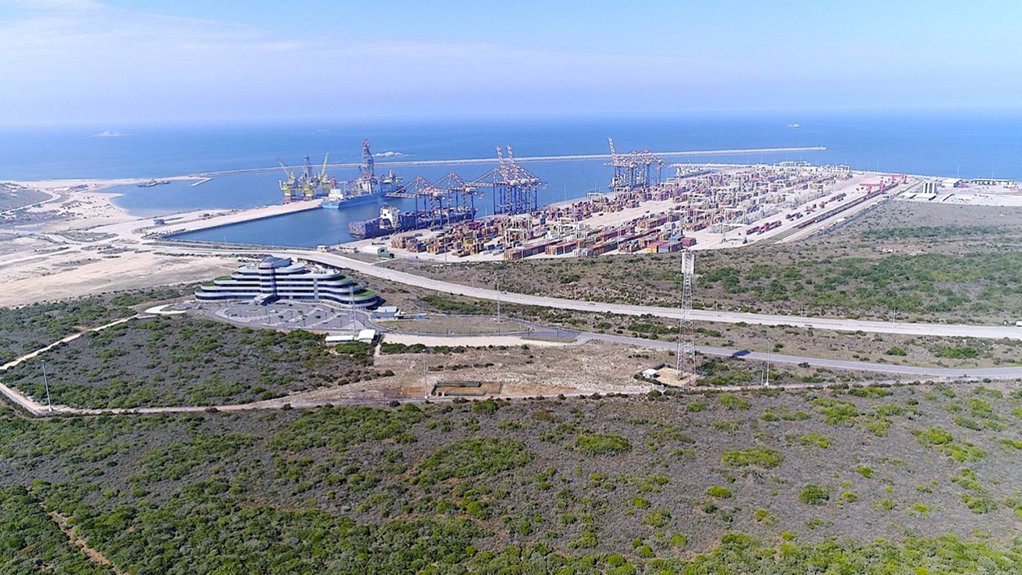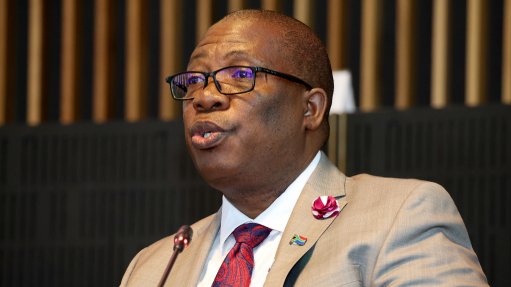Experimental SEZ exempt from strict labour laws can demonstrate mass employment model – CDE
In a society with catastrophic levels of unemployment, special economic zones (SEZs) could move South Africa beyond its current economic paralysis, says independent policy analysis and advocacy organisation the Centre for Development and Enterprise (CDE).
CDE outlined two prominent suggestions in its latest ‘Action Nine: Use the private sector to turbocharge the SEZ programme’ report, which forms part of the Agenda 2024 report series that suggests actions government could take to accelerate growth and jobs after 15 years of stagnation and decline.
The first suggestion involves an experimental pilot SEZ that is privately-owned and operated for labour-intensive manufacturing, while the second suggestion involves more private-sector involvement with the broader SEZ programme.
The rationale for this sentiment stems from the South African government having spent R25-billion on 12 SEZs since their inception in 2024, but only having four successful designated zones that have attracted meaningful commercial activity – the Tshwane Automotive SEZ, the Dube TradePort, the East London Industrial Development Zone and the Coega SEZ.
However, CDE executive director Ann Bernstein says that despite Coega being the largest and most expensive SEZ in the country, it is still mostly empty and not fully living up to its potential.
“South Africa’s SEZ programme has done very little to revitalise the manufacturing sector, promote export-oriented industries or generate sufficient jobs to make even a small dent in the country’s unemployment crisis,” she states.
"For an SEZ to be successful, it truly needs to be special, offering investors different rules from the rest of the economy, including lower permitted wages and more flexible employment arrangements.
“What if a single experimental zone can demonstrate the viability of this model of creating more labour-intensive manufacturing to absorb unskilled workers,” Bernstein argues.
She cites examples in Colombia, China, Mauritius, Dominican Republic and Türkiye where privately managed SEZs have progressed rapidly, attracting much foreign investment and sparking massive growth and largely solving for unemployment, without requiring national reform.
EXPERIMENTAL SEZ
The CDE suggests an experimental SEZ could work at Coega, given the established infrastructure, expertise in the area, its having a special port and it being relatively empty.
The SEZ can allow wages, working conditions, piecework, productivity bonuses and shift hours to be negotiated at factory level, which would reduce the impact of high sectoral minimum wages, particularly for smaller firms, while still requiring compliance with the national minimum wage and adherence to health and safety regulations.
All the foods in the zone must be for export and firms must be engaged in new activities, the CDE suggests, adding that, to prevent existing firms from simply relocating, all firms in the Coega SEZ must be new investments and be required to export 100% of their output.
The experimental SEZ can also make all imports duty-free rather than subject to rebates to simplify processes, lower costs and improve competitiveness by eliminating the time-consuming rebate process for firms.
The site can also relax rules governing movement and employment of skilled foreign entrepreneurs and managers. By easing these restrictions, firms in the SEZ would be able to bring in expertise to help manage factories and insert South African exports into global markets.
“Much of the know-how needed to navigate these highly competitive markets is not available in South Africa, so immigrant managers may be necessary to make these businesses competitive,” Bernstein explains.
Finally, the SEZ should be allowed to operate as a commercial entity by the private sector, which will create a more effective environment for investors to generate profits from the SEZ.
Importantly, the CDE is not calling for sweeping national labour law reform, nor is it pushing for the establishment of unsafe sweatshops exempt from health and safety laws.
“South Africa’s greatest challenge is creating jobs for millions of unskilled, inexperienced work seekers. A new experimental SEZ would be a kind of laboratory. If it works, the lessons learned could be applied to the overarching SEZ programme and, eventually, to the economy as a whole,” Bernstein motivates.
WIDER REFORM
The CDE’s second recommendation of unleashing private-sector energy, know-how and risk appetite to SEZs, will require a reconstitution of the SEZ advisory board to include mostly independent experts and private-sector entrepreneurs, with some government officials, to ensure a fair and balanced decision-making process.
“Private companies should be allowed to propose and run SEZs on both public and private land, assuming financial risks, while attracting new investments focused on export production and job creation.
“This would also require new zones to be approved based solely on their potential to increase investment and create jobs, rather than detailed and unrealistic government-imposed criteria – therefore more flexible criteria for approval,” Bernstein says.
SEZ operators should also be allowed to generate renewable energy and water from alternative sources and contract with private transport operations.
“The dissatisfaction with the existing SEZ programme inside the State control has led to calls by some for more centralised control. Rather, the better solution is to open the programme to market forces and private sector expertise,” the CDE believes.
The CDE ultimately believes the SEZ programme is misconceived and is not delivering on growth and jobs, yet they hold the potential to unblock South Africa’s biggest national challenges.
“There are currently untenable pilot policies at national level. If you want successful zones, it has to be special and different form the rest of the economy, keeping investor needs and global competitiveness in mind.
“We have to build a more labour-intensive and faster growing economy. To do that, we have to change and adopt different policies, not double down on failing policies,” Bernstein says.
In responding to critics of these ideas, Bernstein says low wages are better than no wages at all and SEZ reform should not be about exploration but expanding opportunities for individuals that need jobs.
“Everyone wants jobs and growth, but no one wants to change. The SEZ programme has real potential to help drive reform speedily and attract new foreign investment," Bernstein concludes.
PROMINENT SUPPORTING VOICES
Telecoms company Vodacom chairperson Saki Macozoma agrees that it makes sense to trial and test an experimental SEZ of this nature, but there is often much emotion around these kind of issues from unions and political parties.
“We need to do public dialogue and educate people about the potential advantages of a project of this nature, as well as work through the potential challenges that may arise.”
He adds that an experimental SEZ can also solve for the issue of workers being located far away from job sites by implementing a more affordable and quicker transport system.
Consultancy EY partner Tumelo Chipfupa says the inflexibility of labour laws is often a constraint, with its validity needing to be tested. He echoes Macozoma’s sentiment about workers often spending more than 30% of their wages on transport and that, as part of a labour-intensive economic zone, public transport needs to be optimised.
“We should design an SEZ experiment with an open mind and a genuine solution-seeking attitude, with the big question being what we can learn about the policy prescription to take South Africa out of mass unemployment. If the Government of National Unity is serious about targeting structural unemployment, SEZs are a good place to start,” he concludes.
Article Enquiry
Email Article
Save Article
Feedback
To advertise email advertising@creamermedia.co.za or click here
Announcements
What's On
Subscribe to improve your user experience...
Option 1 (equivalent of R125 a month):
Receive a weekly copy of Creamer Media's Engineering News & Mining Weekly magazine
(print copy for those in South Africa and e-magazine for those outside of South Africa)
Receive daily email newsletters
Access to full search results
Access archive of magazine back copies
Access to Projects in Progress
Access to ONE Research Report of your choice in PDF format
Option 2 (equivalent of R375 a month):
All benefits from Option 1
PLUS
Access to Creamer Media's Research Channel Africa for ALL Research Reports, in PDF format, on various industrial and mining sectors
including Electricity; Water; Energy Transition; Hydrogen; Roads, Rail and Ports; Coal; Gold; Platinum; Battery Metals; etc.
Already a subscriber?
Forgotten your password?
Receive weekly copy of Creamer Media's Engineering News & Mining Weekly magazine (print copy for those in South Africa and e-magazine for those outside of South Africa)
➕
Recieve daily email newsletters
➕
Access to full search results
➕
Access archive of magazine back copies
➕
Access to Projects in Progress
➕
Access to ONE Research Report of your choice in PDF format
RESEARCH CHANNEL AFRICA
R4500 (equivalent of R375 a month)
SUBSCRIBEAll benefits from Option 1
➕
Access to Creamer Media's Research Channel Africa for ALL Research Reports on various industrial and mining sectors, in PDF format, including on:
Electricity
➕
Water
➕
Energy Transition
➕
Hydrogen
➕
Roads, Rail and Ports
➕
Coal
➕
Gold
➕
Platinum
➕
Battery Metals
➕
etc.
Receive all benefits from Option 1 or Option 2 delivered to numerous people at your company
➕
Multiple User names and Passwords for simultaneous log-ins
➕
Intranet integration access to all in your organisation





















